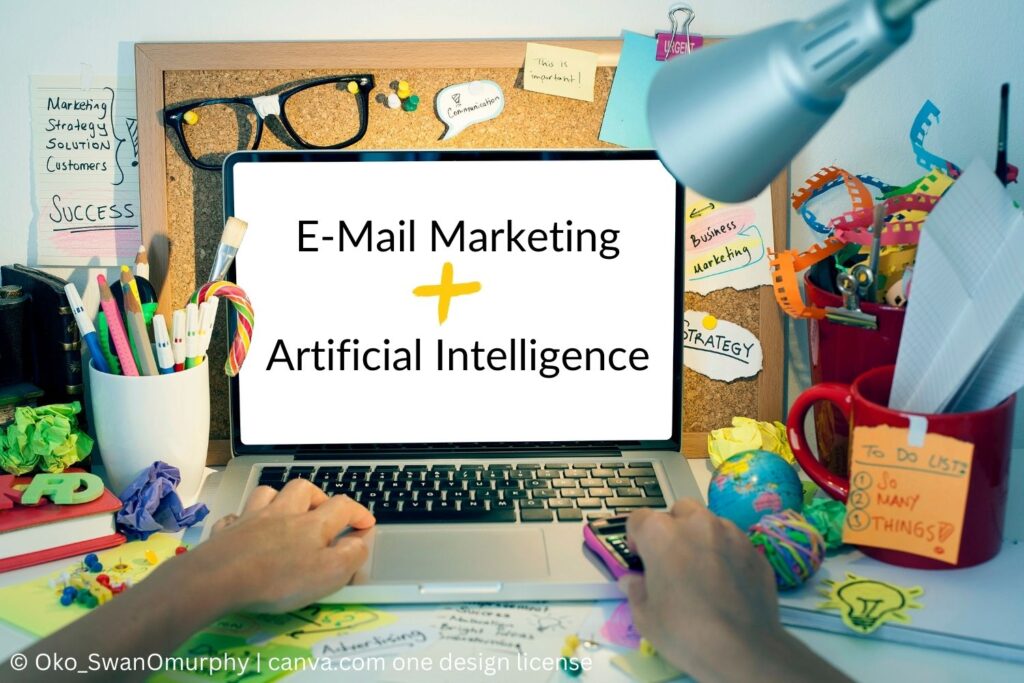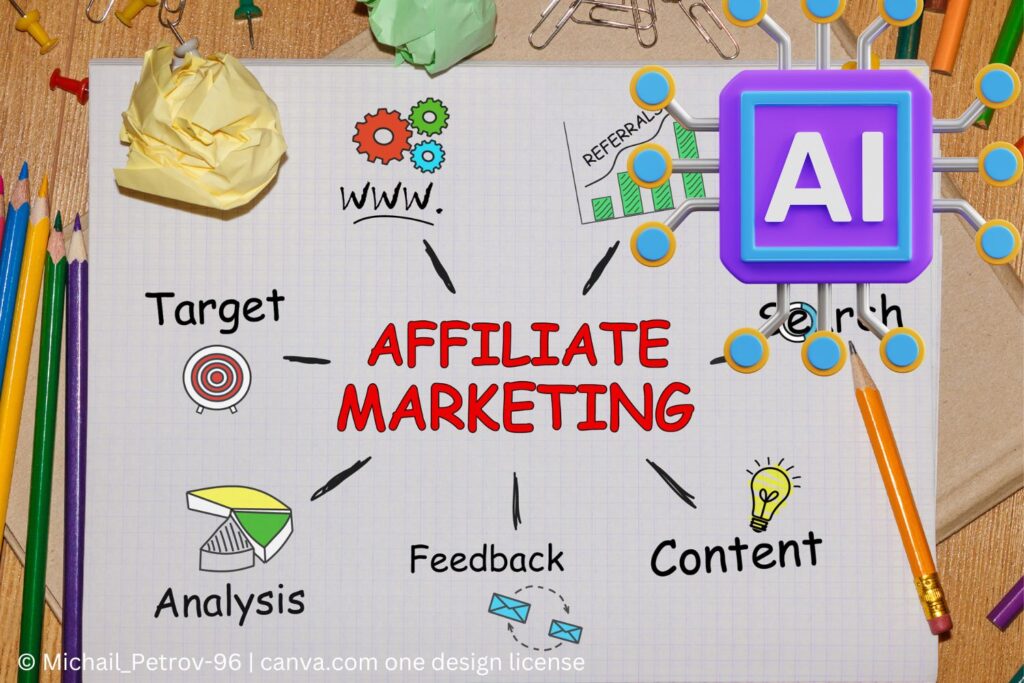Importance of AI in content creation
Content is the backbone of any successful marketing strategy. However, creating effective content that resonates with your audience and drives engagement can be a daunting task. This is where Artificial Intelligence (AI) comes in.
AI is transforming the way we approach content creation. By implementing AI tools, businesses can gain deeper insights into their audience’s preferences, optimize their content for SEO, and create more personalized experiences for their audience.
One of the most significant benefits of using AI in content creation is its ability to provide insights into audience preferences. AI tools can analyze data from various sources, such as social media, search engines, and website analytics, to understand what type of content your audience prefers. This analysis can help businesses create content that resonates with their target audience, which can lead to increased engagement and conversions.
Another benefit of using AI in content creation is its ability to optimize content for search engines. AI tools can analyze keywords and phrases to determine which ones are most relevant and valuable to your audience. This analysis can help businesses create content that is optimized for search engines, which can increase visibility and drive more traffic to their website.
AI can also help businesses create more personalized experiences for their audience. By analyzing data about each user, AI tools can create customized content that is tailored to their preferences and interests. This personalized content can help businesses build stronger relationships with their audience and increase engagement.
Overall, AI is a valuable tool for businesses looking to create more effective and engaging content. By providing insights into audience preferences, optimizing content for search engines, and creating personalized experiences, AI can help businesses drive more traffic, increase engagement, and ultimately, boost their bottom line.
Automated content creation: Use of AI tools for generating texts
Automated content creation has become increasingly popular in recent years, with the rise of artificial intelligence (AI) tools that can generate text without the need for human input. This technology has the potential to revolutionize the way we create content, making it faster and more efficient than ever before. However, as with any new technology, there are also challenges that come with using AI tools for content creation.
One major issue with automated content creation is the risk of producing low-quality or irrelevant content. While AI tools are capable of generating text quickly, they may not always produce content that is of high quality or relevance. This can be a problem for businesses that rely on content marketing to attract and retain customers, as low-quality content can damage their reputation and drive potential customers away.
Another challenge with automated content creation is the need for careful consideration of the pros and cons. While AI tools can save time and reduce the workload for content creators, they may also require significant investment in terms of time, money, and resources. Additionally, there is a risk that relying too heavily on AI-generated content could lead to a loss of creativity and originality in content creation.
Despite these challenges, there are also many benefits to using AI tools for automated content creation. For example, AI tools can help to identify trends and patterns in customer behavior, which can be used to create more targeted and effective content. Additionally, AI-generated content can be customized to fit the needs of different audiences, making it more engaging and relevant.
In conclusion, automated content creation using AI tools is a promising solution for businesses looking to streamline their content creation process. However, it is important to carefully consider the pros and cons before implementing this technology, and to ensure that the content produced is of high quality and relevance to the target audience.
Advantages and disadvantages of automated content creation
The world of content creation has evolved significantly over the years, and the use of AI tools has become increasingly popular. Automated content creation has its advantages and disadvantages, which we will explore in detail below.
Advantages of Automated Content Creation
The primary advantage of automated content creation is its ability to increase efficiency while reducing costs. AI tools can create a vast amount of content in a shorter time than a human writer could. This speed and efficiency can be especially beneficial for businesses that need to produce a large amount of content regularly. Automated content creation can also free up time for writers to focus on other aspects of content creation, such as research and strategy.
Another advantage of automated content creation is that it can help to maintain consistency in brand messaging. AI tools can be programmed to use specific language, tone, and style, ensuring that all content produced aligns with the brand’s overall messaging and voice. This consistency can help to establish trust and credibility with the audience.
Disadvantages of Automated Content Creation
While there are many advantages to automated content creation, there are also some significant disadvantages to consider. One disadvantage is the risk of creating content that is devoid of personality and originality. AI tools use algorithms that may not always capture the nuances of context and tone, leading to the creation of irrelevant content. This lack of originality can make the content less engaging and less likely to resonate with the audience.
Another disadvantage of automated content creation is the potential for errors. While AI tools can be incredibly efficient, they are not infallible. Mistakes can occur, which can damage the credibility of the content and the brand. Additionally, automated content creation can lead to a lack of diversity in content. AI tools may rely on the same sources of information, leading to repetitive content that fails to offer anything new or insightful.
Conclusion
Automated content creation has its advantages and disadvantages, and businesses should carefully consider these factors before implementing AI tools into their content creation strategy. While automated content creation can be an efficient and cost-effective way to produce content, it is essential to ensure that the content remains engaging, original, and relevant to the audience. By striking the right balance between automation and human creativity, businesses can produce content that resonates with their audience and drives results.
Personalization of content: Creating personalized experiences using AI
One of the most significant benefits of AI in content creation is the ability to personalize content experiences for each user. AI can analyze user data, including browsing history, purchase history, and other behavioral data, to create personalized content recommendations. Personalization can increase engagement, boost conversion rates, and foster brand loyalty.
Adapting content to individual needs and interests
Personalization of content does not stop with recommendations; AI can also be used to adapt content to meet individual needs and interests. By analyzing user behavior, AI can optimize content for individual preferences, such as language, reading level, and content type. By tailoring content to individual interests, businesses can improve customer satisfaction, strengthen relationships with customers, and drive engagement.
Improving SEO through AI: Use of AI for keyword research
SEO is critical in ensuring that content is easily discoverable by search engines. AI tools can significantly enhance SEO by allowing businesses to conduct keyword research automatically. Keyword research is essential in identifying the search terms users use to find the content that matches their needs. By using AI tools, businesses can save time and resources and produce more effective content optimized for search engines.
Optimizing meta tags and descriptions through AI
Meta tags and descriptions are vital SEO components that provide context and relevance to search engines. AI can help optimize these components by analyzing user data and identifying tags and descriptions that resonate with the target audience. By optimizing these elements, businesses can significantly improve their chances of ranking higher on search engine pages.
Improving user experience through AI: Use of AI to analyze user behavior
Businesses can use AI to analyze user behavior to provide a better user experience. By understanding how users interact with the content, AI can optimize the layout, design, and format for optimal engagement. Additionally, AI can identify user pain points and implement solutions to improve the overall user experience.
Adapting content and layout to meet user needs
AI can adapt the content and layout of websites to meet the needs of individual users. By considering factors such as reading level, geography, and language, AI can produce personalized layouts that cater to different users’ preferences. This personalization can result in higher engagement rates and a more enjoyable user experience.
Conclusion
AI is a game-changer for content creation. It has the potential to improve efficiency, reduce costs, and create personalized experiences for users. However, businesses should weigh the benefits and drawbacks of using AI tools and determine which aspects of content creation can benefit from AI optimization. By doing so, businesses can leverage AI to create content that is not only efficient but engaging and personalized, improving overall customer satisfaction and driving results.



